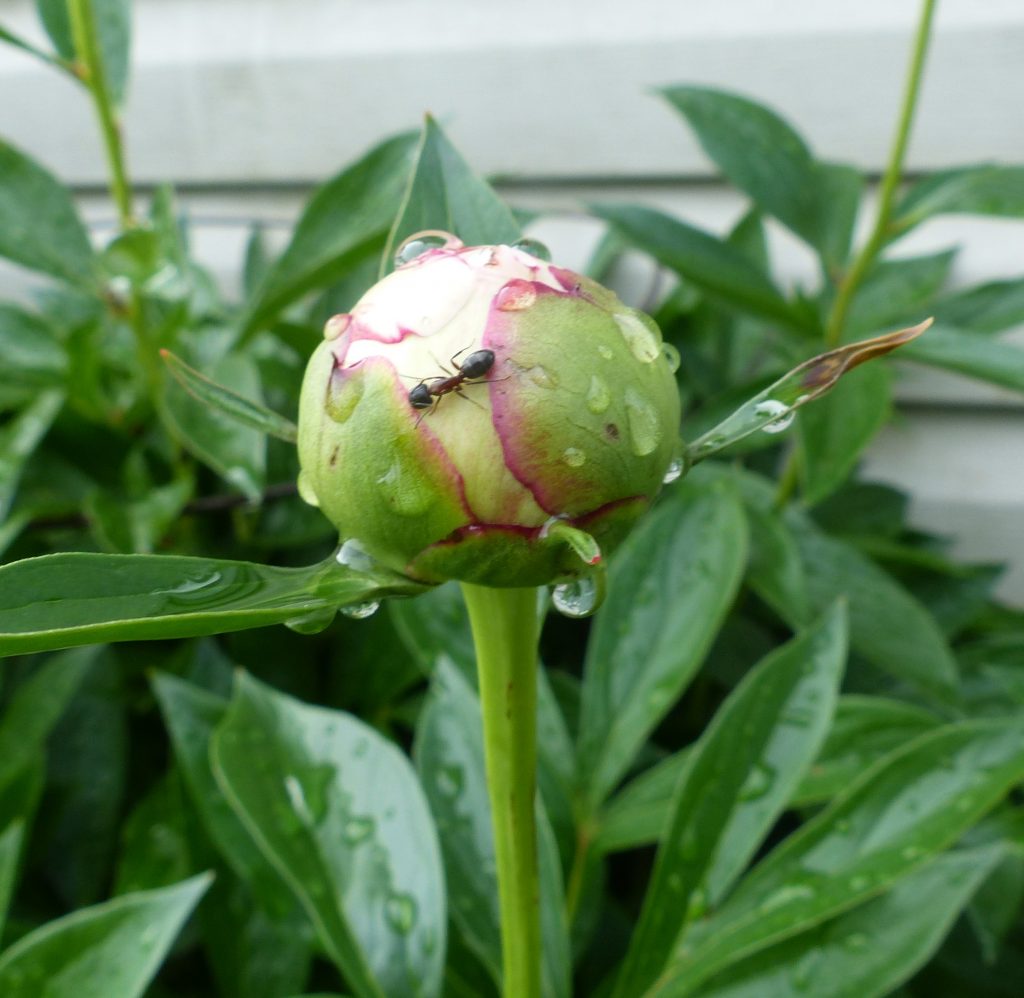It’s Still Just Dirt, The Tillsonburg Norfolk News – June 2021
by Angela Lassam
Ants have been on earth forever. It is estimated at any time to be over a quadrillion (1,000,000,000,000,000) in the world. In the gardening world they are a beneficial insect although they are not the most popular one to many. You will not need to look far to find them.

The common ants – Lasius Niger are the small black ants we are familiar with. They make mounds of soil to form a colony and keep a queen who lays eggs. Ants who are called workers feed her. Her eggs turn to larvae which look like tiny grubs and complete the cycle to ants within two weeks. In August/September some ants will grow wings and mate for the next year. The male then dies and the females return to the soil for winter to repeat again the next year.
Other ants you may see are the larger carpenter ants that are found in moist decaying wood. Outdoors they are in rotted wood, logs and boards. In homes they can be in the wood structures where moisture has gone un-noticed – maybe during renovations. They tunnel making galleries and progress leaving a sawdust behind them. The moist wood then grows fungi and bacteria forms. Removal is the only answer and then you will need pest control assistance.
Fire ants found in lower USA give painful stings. They are not in Canada. The European red fire ant is similar and found here in Canada since the year 2000.They accidently arrived from Europe and were first seen in greenhouses. Outdoors they live in a very humid space under rocks, any old wood or rotted trees. They can give a very painful sting if disturbed and can create an allergic reaction even anaphylactic shock.
The ‘good’ side for leaving ants in your garden is their activities help vegetables and flowers to grow. They are great indicators of aphids, whitefly and mealybugs being present. They are a food source for them. They travel from plant to plant searching for nectar to take back to the nest for the queen. As they move round your plants they carry pollen on their feet so they are natural pollinators. They aireate the soil when they tunnel to make temporary homes and carry dead vegetation which in turn adds compost to the soil.
They are not fussy where they make their temporary homes and you can kill them especially if you have pets or need to protect vegetables and fruit. Artificial sweeteners can be used, a 50/50 mixture of powdered sugar and baking soda or it is said a sprinkle of baby powder will work. Diatomaceous earth can work as well if you commonly use it.
Peonies are a favourite flower for ants. As the bud forms honey dew secretes at the sepals which is the best food source early in the season. They will eat any predatory insects eating the bud on their travels. It is a myth that they tickle the bud encouraging blooming.
For cut flowers it is necessary to cut when completely in tight bud stage or you will need to plunge the heads into water and wait for the ants to surface before you make your arrangement of these beautiful flowers.
An interesting fact is the native Americans in the southwestern deserts used to eat the honeypot ants as a snack and considered as a delicacy.
Now you know how ants live in the garden you may not be so quick to kill them. They are natural pollinators and caretakers in the garden and an important part of the eco-system.
The Tillsonburg Horticultural Society have had member plant sales with excellent response so many thanks to those who visited them. Funds help us keep our town beautiful for everyone to enjoy.
The Junior Gardeners Program has started with packages delivered to participants and they will be judged in August by member volunteers.
Hopefully we will be able to resume monthly meetings in the fall when Covid restrictions allow.
Updates can be found on the website www.tillsonburghorticultural.ca or Facebook-Tillsonburghorticultural.